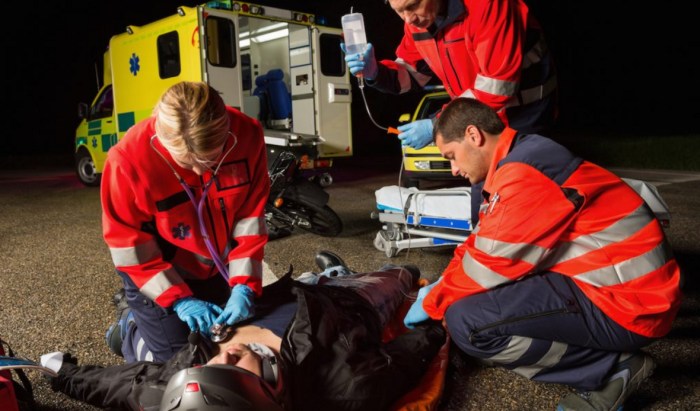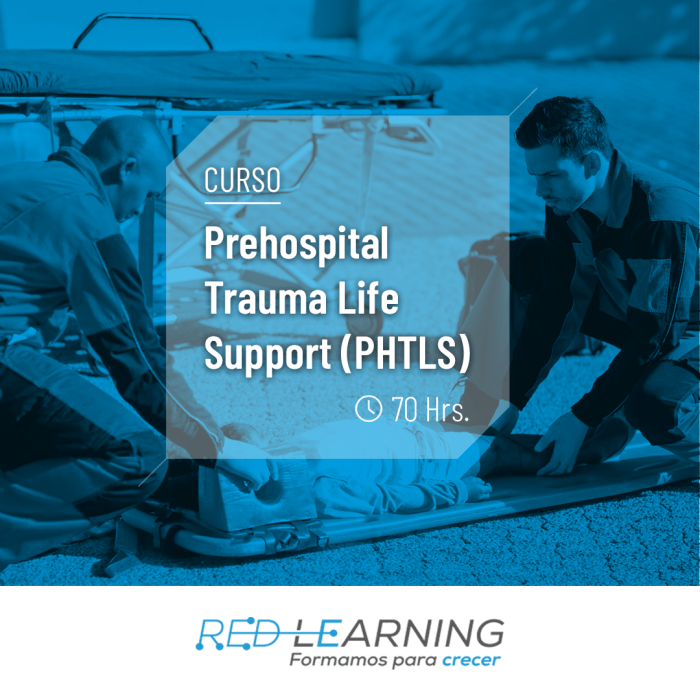Prehospital trauma life support pretest – The Prehospital Trauma Life Support (PHTLS) Pretest serves as an essential gateway for healthcare professionals seeking to enhance their knowledge and skills in managing trauma patients in prehospital settings. This comprehensive assessment tool provides a thorough evaluation of foundational concepts and prepares individuals for the rigorous PHTLS course.
The PHTLS Pretest is meticulously designed to assess a wide range of critical topics, including patient assessment, airway management, hemorrhage control, and spinal immobilization. By successfully navigating this pretest, healthcare professionals demonstrate their readiness to delve into the comprehensive PHTLS curriculum and develop the necessary competencies for providing optimal prehospital trauma care.
Introduction to Prehospital Trauma Life Support (PHTLS) Pretest

The PHTLS pretest is a valuable tool for assessing an individual’s knowledge and preparedness for the PHTLS course. It helps identify areas where further study is necessary to ensure effective prehospital trauma management.
Target Audience and Eligibility
The PHTLS pretest is designed for individuals who plan to enroll in the PHTLS course. It is recommended for healthcare professionals, such as paramedics, EMTs, and nurses, who provide prehospital care to trauma patients.
Pretest Format and Structure, Prehospital trauma life support pretest
The PHTLS pretest is a multiple-choice examination typically consisting of 50-75 questions. It is administered online and has a time limit of 60-90 minutes. The questions cover a wide range of topics relevant to prehospital trauma management.
Content Covered in the PHTLS Pretest

Key Topics and Knowledge Areas
- Scene assessment and management
- Patient assessment and stabilization
- Shock and fluid resuscitation
- Airway management and ventilation
- Circulatory and respiratory emergencies
- Trauma-specific injuries
- Medical emergencies in trauma
- Pediatric and geriatric trauma
- Ethical and legal considerations
Importance of Understanding These Concepts
A thorough understanding of these concepts is crucial for providing optimal care to trauma patients in the prehospital setting. The pretest helps ensure that participants have a solid foundation in these essential knowledge areas before entering the PHTLS course.
Preparation Strategies for the PHTLS Pretest: Prehospital Trauma Life Support Pretest

Tips for Effective Preparation
- Review the PHTLS pretest blueprint to identify the specific topics covered.
- Utilize official PHTLS study materials, including the PHTLS textbook and online resources.
- Consider taking a preparatory course or workshop offered by certified PHTLS instructors.
- Prioritize studying based on the pretest blueprint, focusing on areas where you need the most improvement.
- Practice answering multiple-choice questions to enhance your test-taking skills.
Taking the PHTLS Pretest
Accessing and Navigating the Platform
Instructions on accessing and navigating the PHTLS pretest platform will be provided by the course administrator.
Time Limits and Question Types
The PHTLS pretest typically has a time limit of 60-90 minutes. It consists of multiple-choice questions with varying levels of difficulty.
Strategies for Time Management and Answering Questions
- Manage your time wisely by allocating a specific amount of time for each question.
- Read each question carefully and identify the key information.
- Eliminate obviously incorrect answers first.
- If unsure about an answer, make an educated guess or mark it for later review.
- Use the process of elimination to narrow down your choices.
Understanding and Interpreting Pretest Results

Interpreting Your Score
Your pretest results will be provided in the form of a score or percentage. A passing score typically indicates a sufficient level of knowledge for entry into the PHTLS course.
Significance of Score Ranges
Different score ranges may have implications for your preparation for the PHTLS course:
- High scores indicate a strong foundation in PHTLS concepts and may require minimal additional preparation.
- Moderate scores suggest a need for further review and reinforcement of certain topics.
- Low scores may indicate a significant knowledge gap and require substantial preparation before enrolling in the PHTLS course.
Using Results to Enhance Knowledge and Skills
Your pretest results can be used to identify areas where you need to focus your studies. By reviewing the incorrect answers and consulting the relevant study materials, you can enhance your understanding of PHTLS principles and improve your performance in the course.
Q&A
Who is eligible to take the PHTLS Pretest?
Healthcare professionals involved in prehospital trauma care, including emergency medical technicians, paramedics, nurses, and physicians, are eligible to take the PHTLS Pretest.
What is the purpose of the PHTLS Pretest?
The PHTLS Pretest serves two primary purposes: to assess the foundational knowledge of individuals seeking to enroll in the PHTLS course and to identify areas where additional study and preparation are needed.
How do I prepare for the PHTLS Pretest?
Effective preparation for the PHTLS Pretest involves reviewing core concepts related to prehospital trauma management, utilizing study materials provided by the PHTLS program, and engaging in practice questions to enhance comprehension and retention.